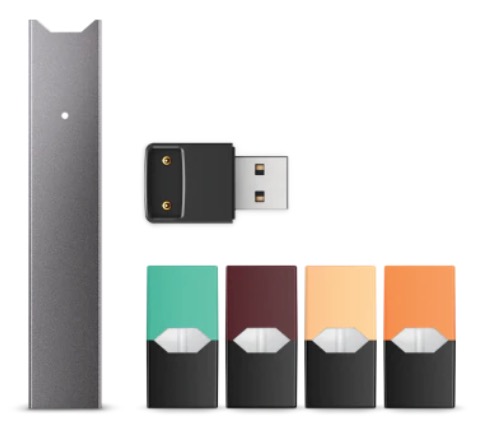The net worth of Juul Labs’ co-founders James Monsees (chief product officer) and Adam Bowen (chief technology officer) jumped from $730 million to about $1.4 billion after Altria took a 35% stake in the e-cigarette company. The investment in Juul Labs was at a $38 billion valuation, according to Forbes. And Altria paid $12.8 billion for the 35% ownership.
The $1.4 billion estimates are based on Forbes’ assumption that each of the founders owns about 1.75% of JUUL based on their sources. Forbes takes a 10% discount on the valuation of private companies due to lack of transparency. And it is believed that each of the founders sold over $500 million in shares to date.

Photo Credit: JUUL
As a result of this investment, the valuation of JUUL more than doubled from $16.2 billion when the company raised money earlier this year. Wells Fargo senior analyst Bonnie Herzog estimates that JUUL generates about $2 billion in revenue.
JUUL CEO Kevin Burns acknowledged that the company understands the controversy and skepticism that comes with affiliation and partnership with the biggest tobacco company in the U.S. And Burns admitted that JUUL was skeptical at first but then realized that the partnership could help accelerate the success in switching adult smokers.
“We are taking significant action to prepare for a future where adult smokers overwhelmingly choose non-combustible products over cigarettes by investing $12.8 billion in JUUL, a world leader in switching adult smokers. We have long said that providing adult smokers with superior, satisfying products with the potential to reduce harm is the best way to achieve tobacco harm reduction,” said Altria CEO Howard Willard in a statement following the investment announcement. “Through JUUL, we are making the biggest investment in our history to achieve that goal. We strongly believe that working with JUUL to accelerate its mission will have long-term benefits for adult smokers and our shareholders.”
Forbes also pointed out that a deal with Altria could be strategic because it could help JUUL access shelf space at retail stores. And Altria could provide JUUL with access to research and marketing resources. Plus it could help JUUL potentially access Altria’s customer base of smokers who may be trying to quit.
The Intercept reported that 1,500 JUUL employees split a $2 billion dividend as a result of the investment. This made a number of JUUL’s employees millionaires overnight.
Altria reportedly outbid British American Tobacco for this deal. Earlier this year, Altria also invested $1.8 billion in a Canadian cannabis grower called Cronos.
Even though converting smokers to vaping would reduce cancer cases, JUUL has been criticized for becoming too popular by potentially causing younger people to become addicted to nicotine. As a result, JUUL is facing pressure from regulators. Back in November, Burns said that he certainly does not want youth using JUUL’s products. Nielsen estimates that JUUL is currently the dominant player in the e-cigarette market with about a 73% market share.
Fool.com explained that the FDA has been scrutinizing how JUUL Labs makes and markets the e-cigarettes. And the FDA recently set up new rules that banned e-cigarette flavors except for tobacco, mint, and menthol from being sold anywhere outside of specialty stores so minors would have a harder time accessing the products.
JUUL Labs spun out of electronic vaporizer company PAX Labs a couple of years ago and quickly surpassed other brands like Imperial Brands’ blu eCig and British American Tobacco’s Vuse. Earlier this month, Altria said it was going to discontinue its MarkTen and Green Smoke products and the Verve oral nicotine products.
Altria said that this decision to pull its e-cigarette products was made due to the financial performance of the products and the regulatory process. As a result, Altria was expecting to write down the assets as a one-time, pretax charge of about $200 million CNBC reported.
Philip Morris International spun out of Altria in 2008 in order to expand Marlboro and other cigarette brands around the world. And Philip Morris’ IQOS e-cigarette device is still pending approval by the FDA. Altria believes that IQOS will also help the company gain market share in the e-cigarette market.
Altria oversees Philip Morris’ brands in the U.S. And several years ago, Altria and Philip Morris set up agreements to commercialize each other’s smoke-free products in their respective markets. The IQOS device heats tobacco to create a vapor for delivering nicotine, but it does not burn it.
How do JUUL devices work? JUUL’s products feature liquid-filled pods. These pods contain nicotine salts, which is similar to traditional cigarettes. Smokers have often described JUUL’s products of having a smoother taste than the freebase nicotine and e-liquids with nicotine salts dissolved in them. This is due to the benzoic acid in the formulation. JUUL’s device looks similar to a thumb drive, which has helped with the marketing of the devices.
Juul is going to remain fully independent following this investment.


